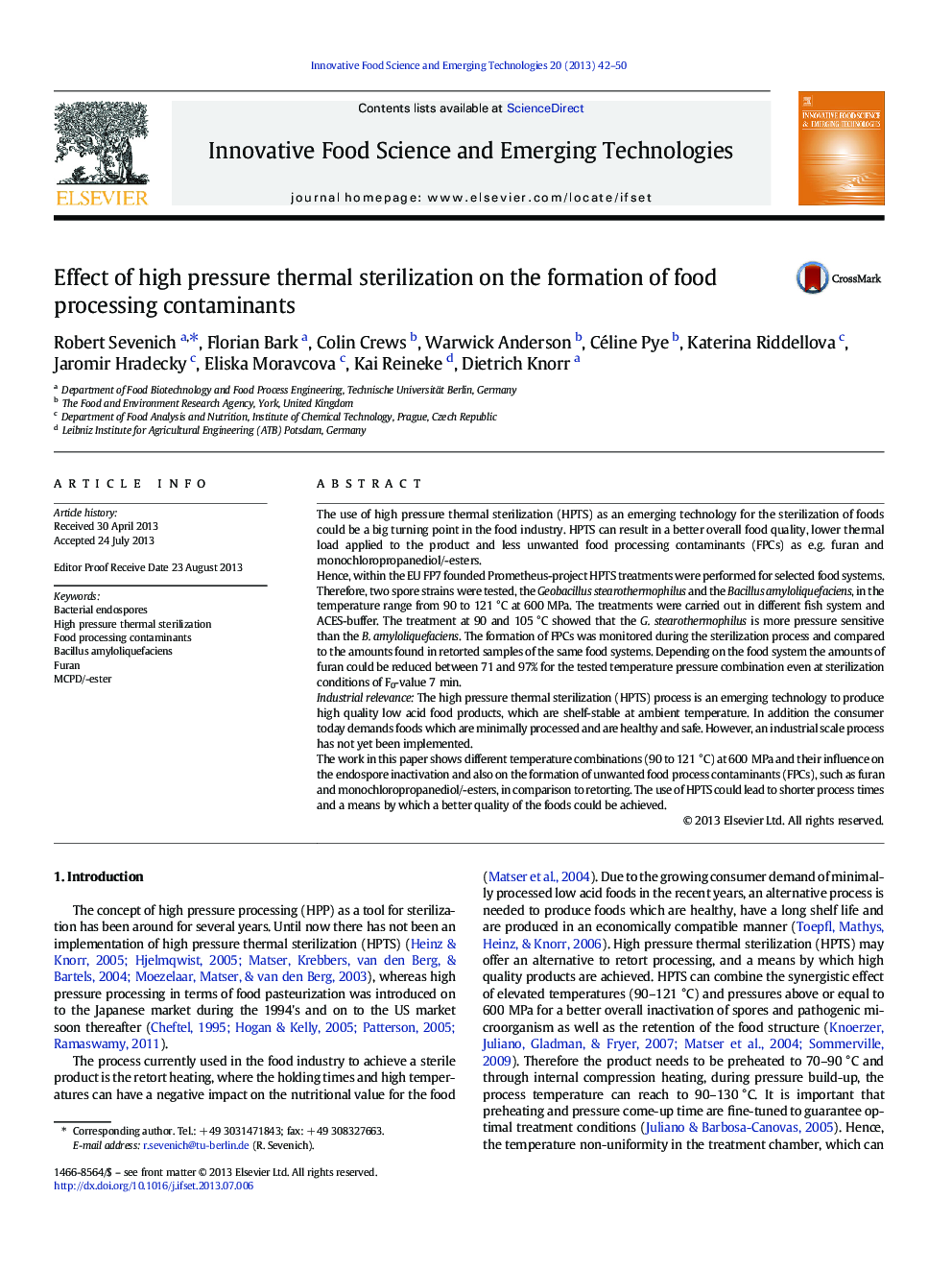| کد مقاله | کد نشریه | سال انتشار | مقاله انگلیسی | نسخه تمام متن |
|---|---|---|---|---|
| 2086568 | 1545546 | 2013 | 9 صفحه PDF | دانلود رایگان |

• Geobacillus stearothermophilus isn't suitable as indicator strain for HPTS.
• For HPTS in food systems the Bacillus amyloliquefaciens is more pressure resistant.
• A reduction of furan in the foods is possible by 71–97% compared to retorting.
• Monochloropropanediol/esters are more dependent on the choice of oil than the process.
• Certified PATS is process of choice as it guarantees safe and reduced FPCs products.
The use of high pressure thermal sterilization (HPTS) as an emerging technology for the sterilization of foods could be a big turning point in the food industry. HPTS can result in a better overall food quality, lower thermal load applied to the product and less unwanted food processing contaminants (FPCs) as e.g. furan and monochloropropanediol/-esters.Hence, within the EU FP7 founded Prometheus-project HPTS treatments were performed for selected food systems. Therefore, two spore strains were tested, the Geobacillus stearothermophilus and the Bacillus amyloliquefaciens, in the temperature range from 90 to 121 °C at 600 MPa. The treatments were carried out in different fish system and ACES-buffer. The treatment at 90 and 105 °C showed that the G. stearothermophilus is more pressure sensitive than the B. amyloliquefaciens. The formation of FPCs was monitored during the sterilization process and compared to the amounts found in retorted samples of the same food systems. Depending on the food system the amounts of furan could be reduced between 71 and 97% for the tested temperature pressure combination even at sterilization conditions of F0-value 7 min.Industrial relevanceThe high pressure thermal sterilization (HPTS) process is an emerging technology to produce high quality low acid food products, which are shelf-stable at ambient temperature. In addition the consumer today demands foods which are minimally processed and are healthy and safe. However, an industrial scale process has not yet been implemented.The work in this paper shows different temperature combinations (90 to 121 °C) at 600 MPa and their influence on the endospore inactivation and also on the formation of unwanted food process contaminants (FPCs), such as furan and monochloropropanediol/-esters, in comparison to retorting. The use of HPTS could lead to shorter process times and a means by which a better quality of the foods could be achieved.
Journal: Innovative Food Science & Emerging Technologies - Volume 20, October 2013, Pages 42–50